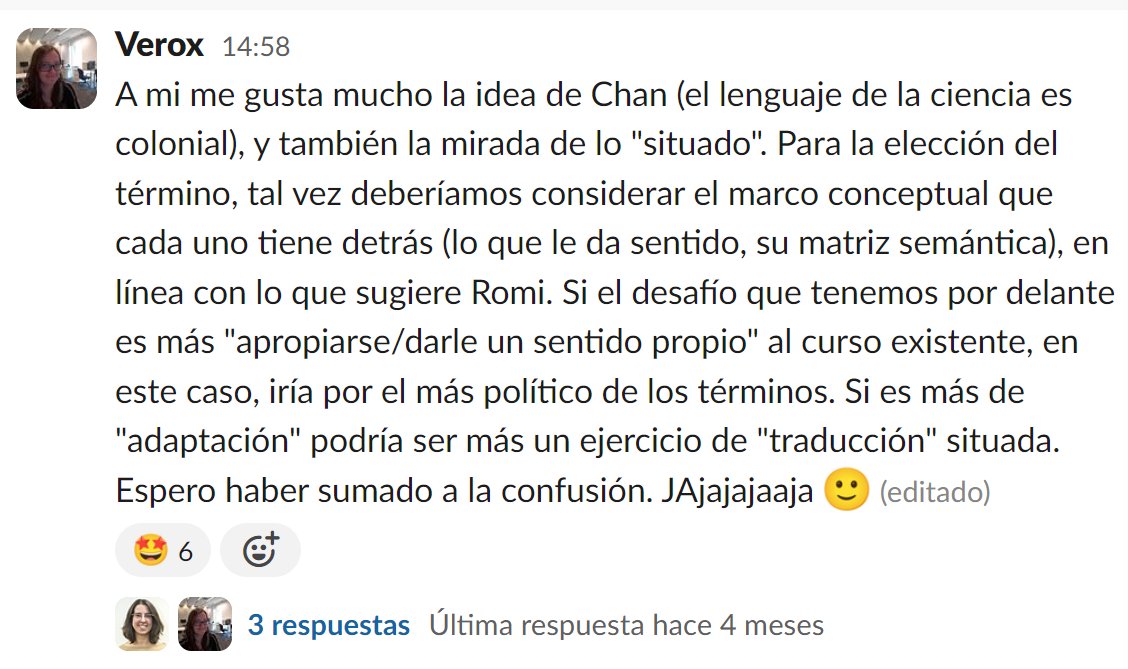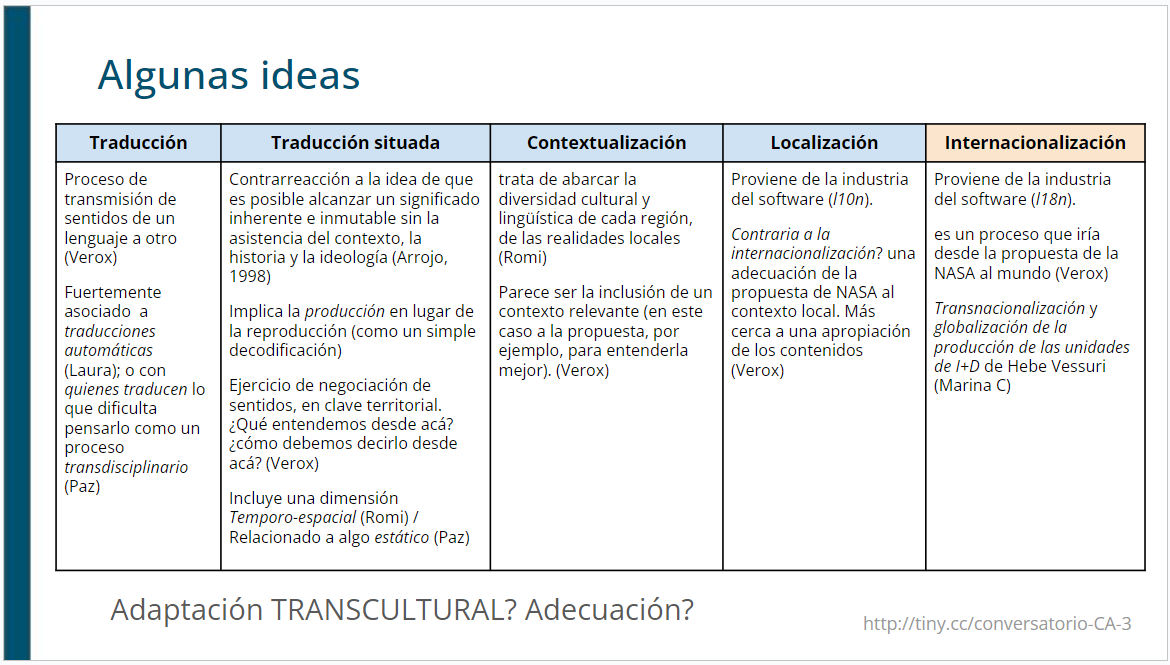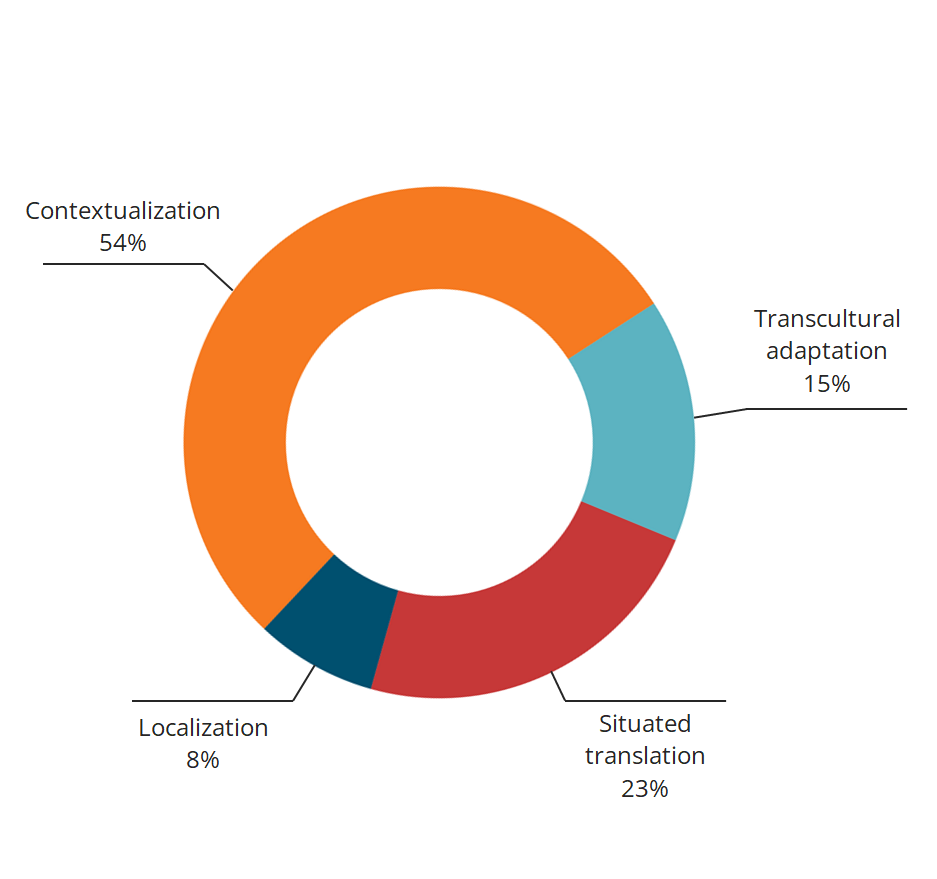What do we mean when we talk about Contextualization?
As we shared in the publication Conversations on Open Science: Collective Reflections in Community, we began 2024 by reflecting on various aspects, challenges, and injustices faced by researchers in Latin America. We also aimed to recognize the advantages and potentialities of the debate about their scope and possibilities. In this process, we explored how many of these challenges arise from the application of Open Science principles in the Global South, consequently widening the gap in the distribution of recognition and knowledge in global science.
The series of discussions concluded with an invitation to reflect on Open Science as a field of epistemic justice. It invited us to think about the overvaluation of the other’s word regarding our knowledge and capacity to “speak” (testimonial epistemic justice) and the fair distribution of it, i.e., the ability to be a subject of knowledge (hermeneutical epistemic justice).
These considerations led to a series of interesting questions about the possibility that we, from our region and our identity, can use Open Science principles and create a space to strategically analyze how to contribute to epistemic justice.
With the goal of creating the Spanish version of the NASA TOPS course in mind, and thinking about the strength of researching, reflecting, exchanging, and building in our language while doing Open Science in Spanish, we saw the value of a community debate on the best way to name this task, considering the complexity of adapting content to represent the identity of Open Science in Latin America.
In this sense, we proposed a written exchange on Slack about the differences and similarities between the terms Internationalization, Contextualization, Localization, and Translation. From this exchange, we derived the initial considerations on the words that allowed us to think about the work we were about to undertake:
 Example of one of the exchange messages on MetaDocencia's Slack: "I really like Chan's idea (the language of science is colonial), and also the perspective of the 'situated.' For choosing the term, maybe we should consider the conceptual framework behind each one (what gives it meaning, its semantic matrix), in line with what Romi suggests. If the challenge ahead is more about 'appropriating/giving our own meaning' to the existing course, in this case, I would go for the most political of the terms. If it’s more about 'adaptation,' it could be more of an exercise in 'situated' translation. I hope I've added to the confusion. Hahahaha"
Example of one of the exchange messages on MetaDocencia's Slack: "I really like Chan's idea (the language of science is colonial), and also the perspective of the 'situated.' For choosing the term, maybe we should consider the conceptual framework behind each one (what gives it meaning, its semantic matrix), in line with what Romi suggests. If the challenge ahead is more about 'appropriating/giving our own meaning' to the existing course, in this case, I would go for the most political of the terms. If it’s more about 'adaptation,' it could be more of an exercise in 'situated' translation. I hope I've added to the confusion. Hahahaha"
This exchange took place in writing until the day of the third Conversation meeting, where the debate was brought to the participants. An introduction was made, systematizing the written exchange and understanding the task of opening knowledge generated in English to a Spanish-speaking audience, a task that undoubtedly goes beyond merely translating materials.
During the meeting, we presented part of the written debate and discussed the need to find a concept that:
- goes beyond the issue of text or language,
- includes meaning and objective;
- incorporates the spatiotemporal dimension;
- adds transdisciplinarity;
- and frames its political and communicational use (i.e., what it implies and what the words generate in those who receive them).
 This is a slide from the presentation made during the meeting that mentions the main ideas from the written debate about the terms Translation, Situated Translation, Contextualization, Localization, and Internationalization.
This is a slide from the presentation made during the meeting that mentions the main ideas from the written debate about the terms Translation, Situated Translation, Contextualization, Localization, and Internationalization.
Lastly, a form was presented for voting on the term that best represented MetaDocencia’s work in developing the Spanish version of the NASA-TOPS OS 101 Open Science course.
“Contextualization” was defined as the ideal term by the community, with 54% of the votes.
 Donut chart showing the voting options for selecting the term that defined the work to be done.
Donut chart showing the voting options for selecting the term that defined the work to be done.
Although this journey was undertaken with the concrete task of adapting NASA’s material, MetaDocencia currently has other projects where the accessibility of knowledge in Spanish is key. Therefore, Contextualization transcended the NASA project and has definitively become a pillar of our organization.
In its latest version (always in progress), we define it as a pillar “based on our values of diversity, autonomy, and versatility, this pillar promotes the development of a Latin American perspective in all the projects where we co-create networks, learning spaces, and resources for Spanish-speaking communities”. This is why we assign strategic and everyday importance to the name and task.
Acknowledgments
This publication was made possible thanks to a grant from the Chan Zuckerberg Initiative (DOI: 10.5281/zenodo.7386372), NASA grants 80NSSC23K0854 (DOI: 10.5281/zenodo.8215455), 80NSSC23K0857 (DOI: 10.5281/zenodo.8250978), and 80NSSC23K0861 (DOI: 10.5281/zenodo.8212072), and grant DAF2021-239366 and subsidy DOI https://doi.org/10.37921/522107izqogv from the Chan Zuckerberg Initiative DAF, an advised fund of the Silicon Valley Community Foundation (Funder DOI 10.13039/100014989), and the grant “Open Cloud Collaborative Project for Latin America and Africa (the Catalyst Project)” from the same funder (DOI: https://doi.org/10.5281/zenodo.8431422).
Did you like this post? You can freely reuse it under the license CC by 4.0; you just have to cite it.
This is the quote that we recommend you use to reference it: Vazano, I., López, S., Formoso, J., Ación, L., & Xhardez, V. (2024). What do we mean when we talk about Contextualization?. Zenodo. https://doi.org/10.5281/zenodo.13321114